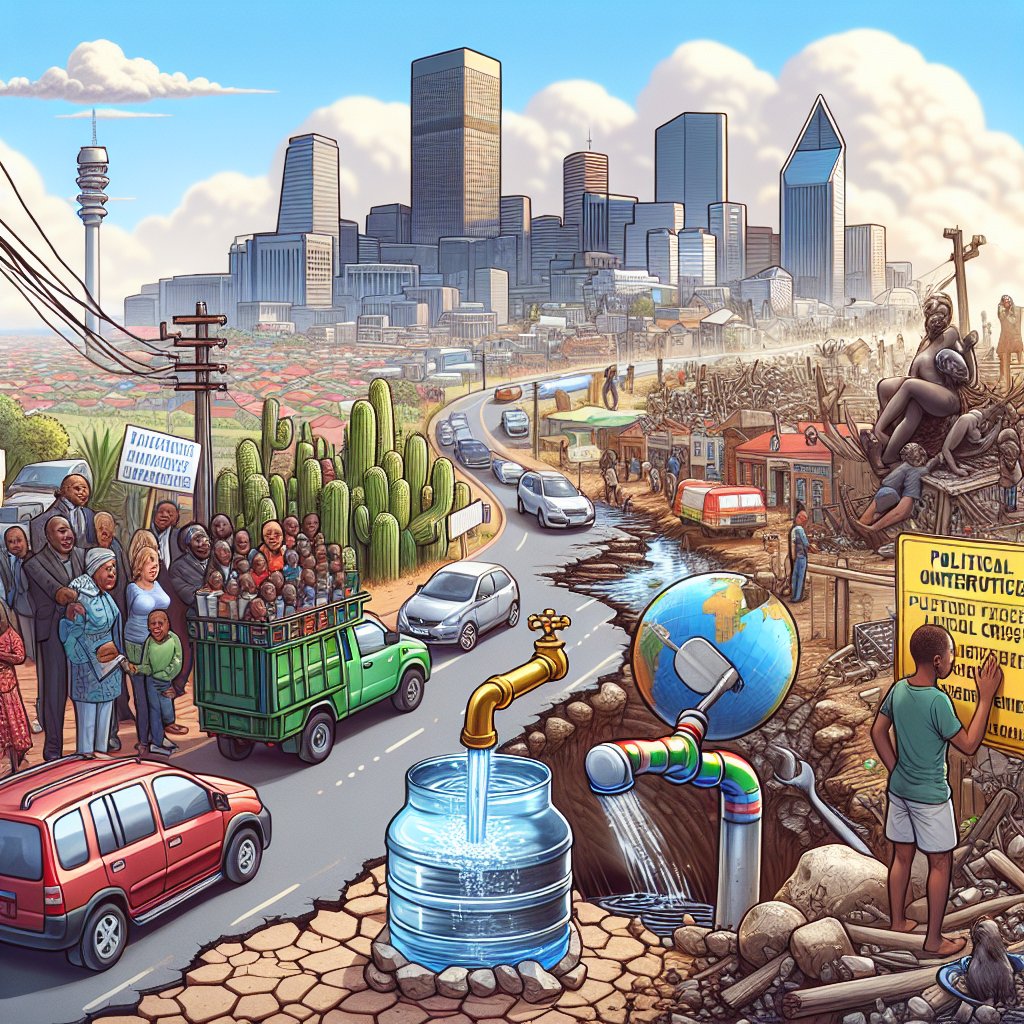Image created by AI
Johannesburg Grapples with Infrastructure Decay Amid Financial Woes
Africa's economic powerhouse, Johannesburg, once the poster child for prosperity on the continent, is today grappling with an alarming infrastructure crisis. The jewel in South Africa's crown, known for its bustling streets and affluent neighbourhoods, now paints a starkly different picture – one punctuated by crumbling roads, chronic power outages, and prolonged water shortages. According to recent council discussions, the City of Gold requires a staggering R221 billion to address its ailing infrastructure and overdue upgrades.
This financial quagmire comes at a time when Johannesburg residents endure regular electricity cuts and navigate through pothole-riddled roads – issues that are more than just inconveniences, they are hazards that endanger public safety and threaten economic stability. In March alone, parts of the city were deprived of water for up to 11 days – an untenable situation for any metropolis, let alone Africa's richest city.
The predicament Johannesburg faces is not solely due to a lack of funds but is also tightly knotted with years of political turbulence. The metropolitan council, consisting of 270 councillors, has witnessed a revolving door of mayors – a total of eight since 2019 – reflecting the volatile political alliances within the city's governance structure. This unrest at the local government level is a sharp contrast to the national scene where the ANC, despite losing its solid majority, still manages a coalition with the Democratic Alliance and other parties, unlike the fragmented city council where power dynamics are less stable.
The strife to secure the city's financial future led to the imposition of utility and rate increases above the inflation rate and the controversial push for a R2.5 billion loan from the French development agency. This move met resistance from opposing parties, but the city's dire circumstances left little room for debate.
However, these steps might barely put a dent in the outstanding needs, as the city has consistently failed to meet its annual targets for water infrastructure investment since at least 2008. Moreover, City Power, the city's electricity provider, is in desperate need for upgrades to sustain network reliability and avoid the increasing power outages that disrupt daily life and cost the city's economy dearly.
Amidst this backdrop of financial and infrastructure disrepair, Johannesburg also faces significant challenges in revenue collection. With R6.1 billion owed by large customers, including government departments and corporations, and payments more than three months overdue, the city's coffers are dwindling at an alarming rate.
The city's struggle to fund its basic services brings to the fore questions about the sustainability of its current economic model and the ability of its leaders to navigate it out of this quagmire. The community of Johannesburg, once hopeful for continued growth and development, now looks on with concern as the city they call home battles to revive itself from the grips of decay.
Johannesburg's path to recovery is fraught with obstacles, but an urgent, coherent, and well-funded strategy to revive the city's infrastructure might not only ensure the safety and well-being of its citizens but also reinstate its position as a leading African economic hub.










